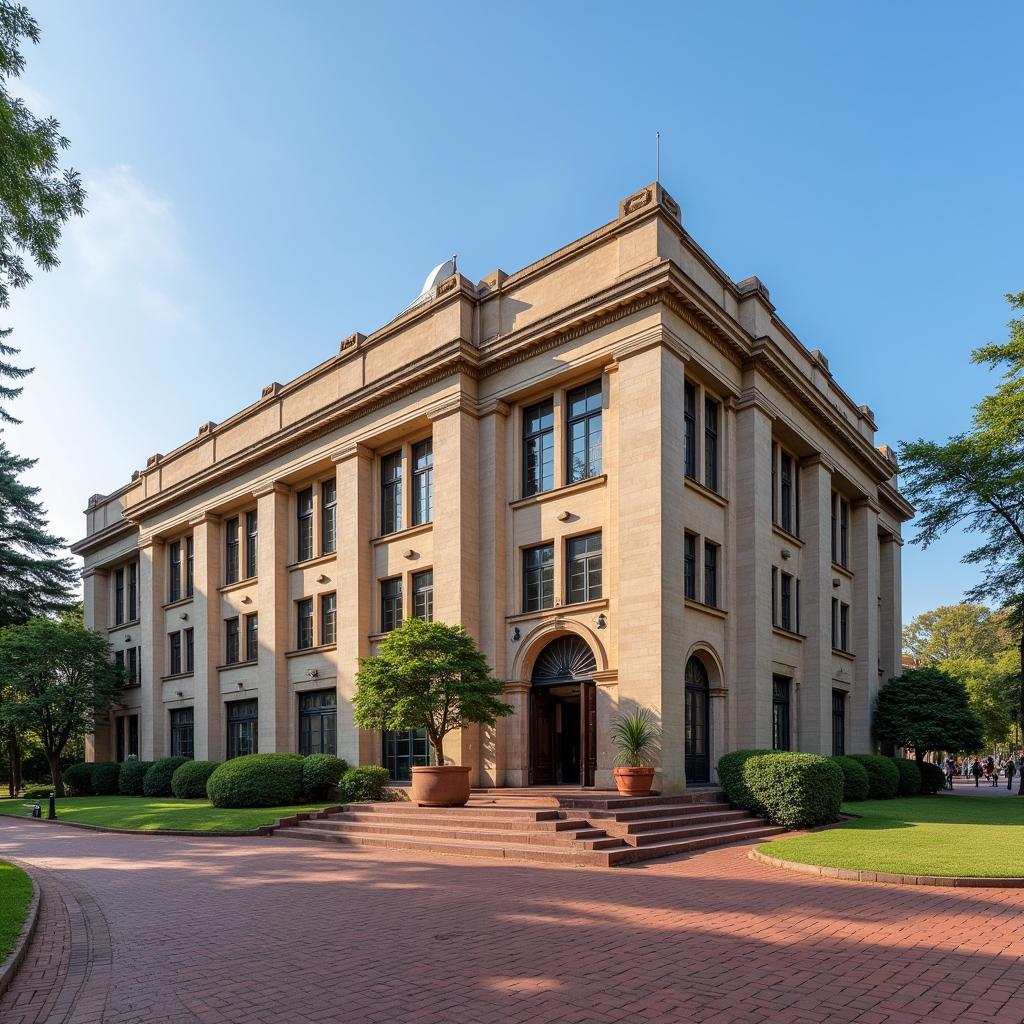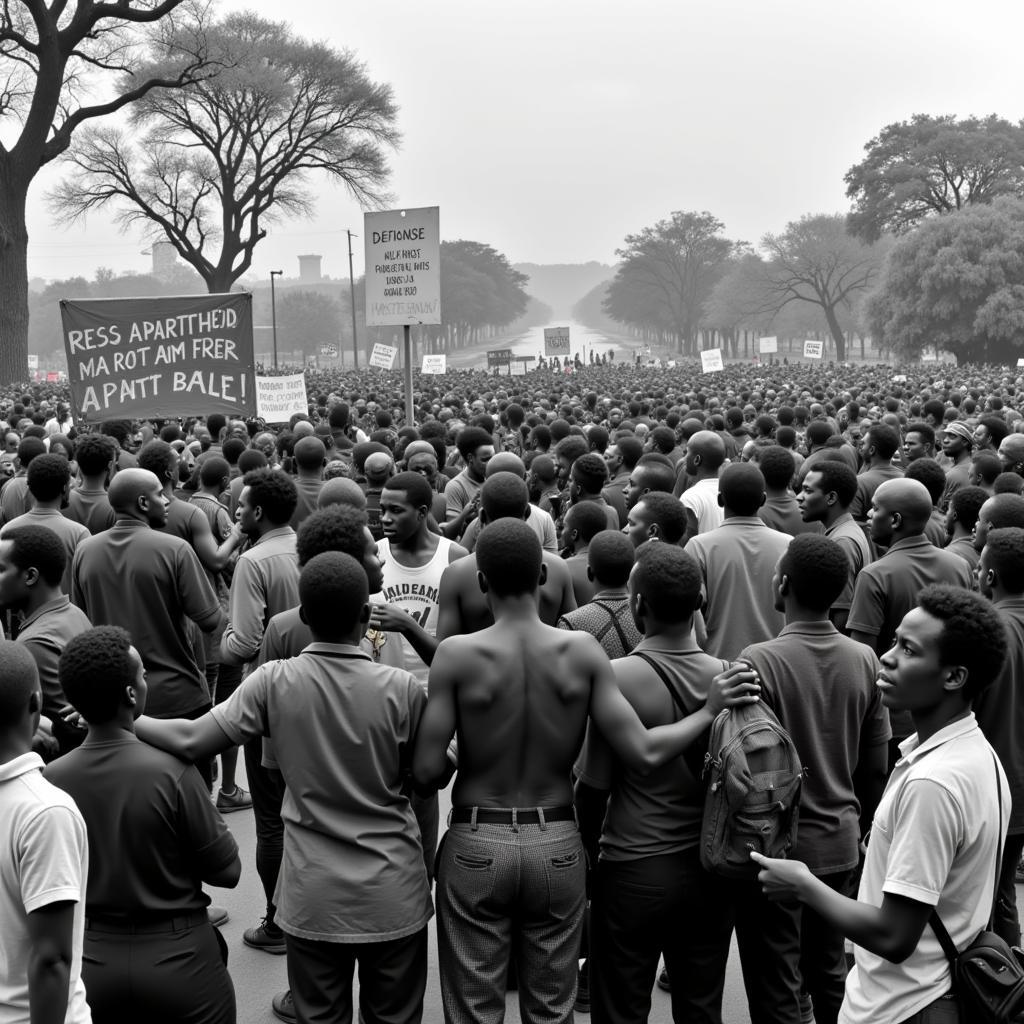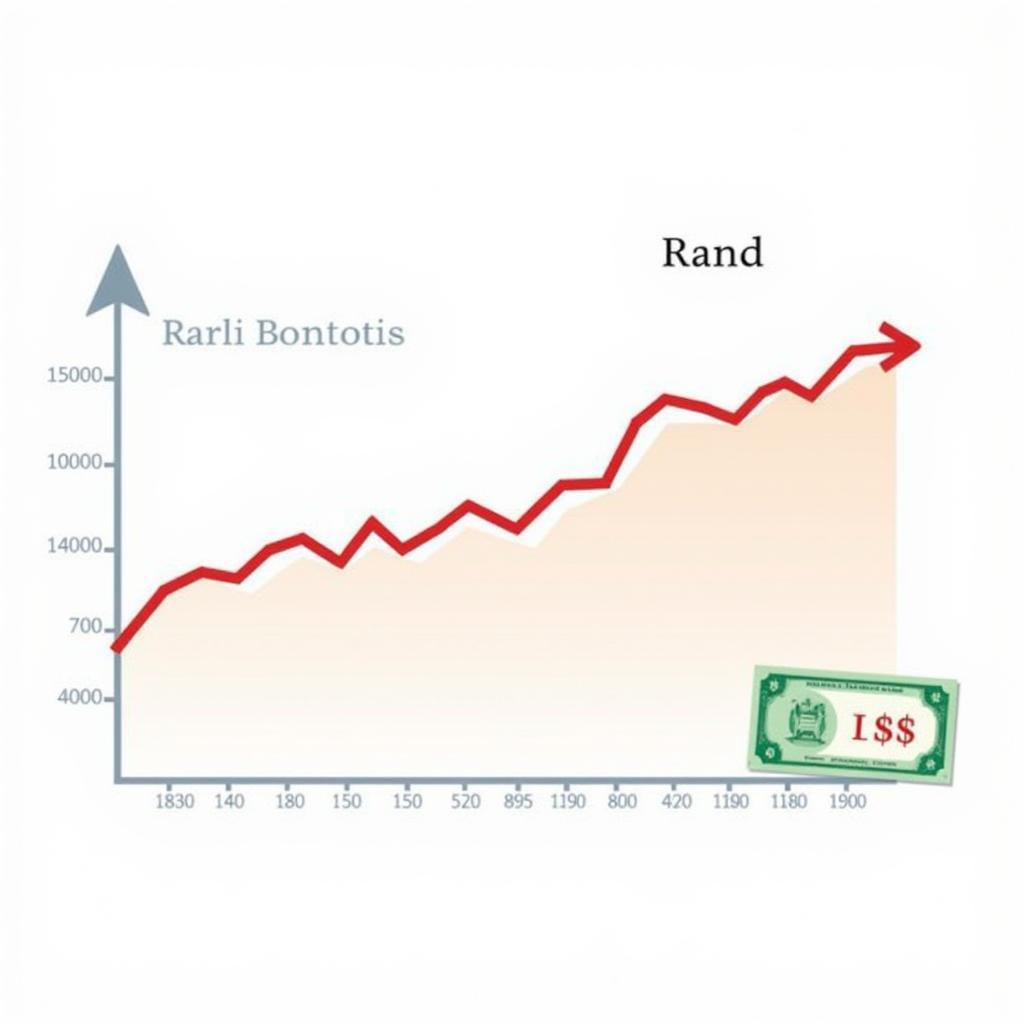Exploring the Rich Tapestry of African Francophone Countries
The term “African Francophone countries” refers to the nations across the African continent where French is an official language, a lasting legacy of French colonialism. These countries represent a diverse and vibrant tapestry of cultures, each with unique histories, traditions, and identities, yet bound by a shared linguistic heritage.
A Journey Through History: From Colonialism to Independence
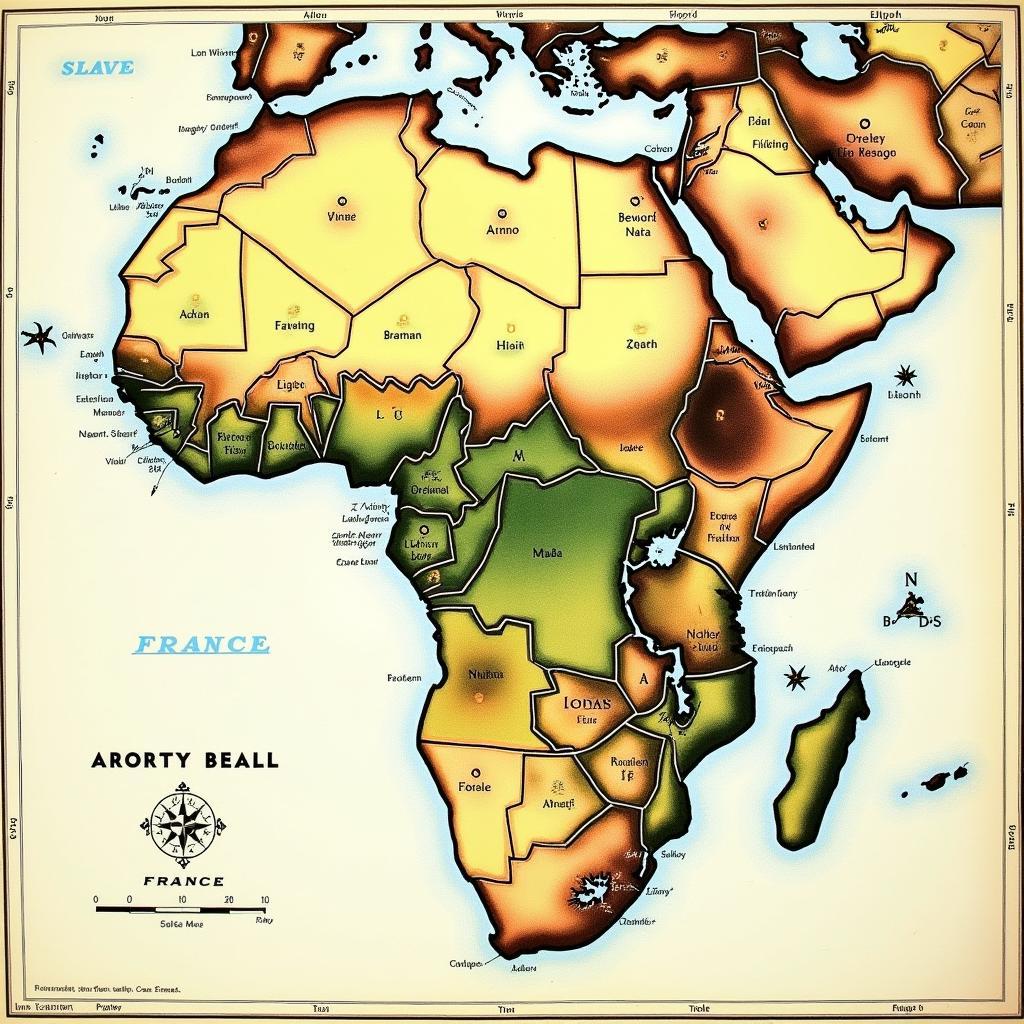 Map of French Colonial Africa
Map of French Colonial Africa
The history of French influence in Africa dates back to the 17th century, marked by exploration, exploitation, and ultimately, colonization. The Berlin Conference of 1884-1885 carved up Africa among European powers, with France gaining control of a significant portion, mainly in West and Central Africa. This era witnessed the imposition of French language, culture, and administration, shaping the political and social landscapes of these colonies.
The mid-20th century saw a wave of independence movements sweep across Africa. African Francophone countries fought for their sovereignty, with many achieving independence in the 1960s. However, the transition was often complex, marked by political instability and economic challenges.
Linguistic Ties: French Language and Identity
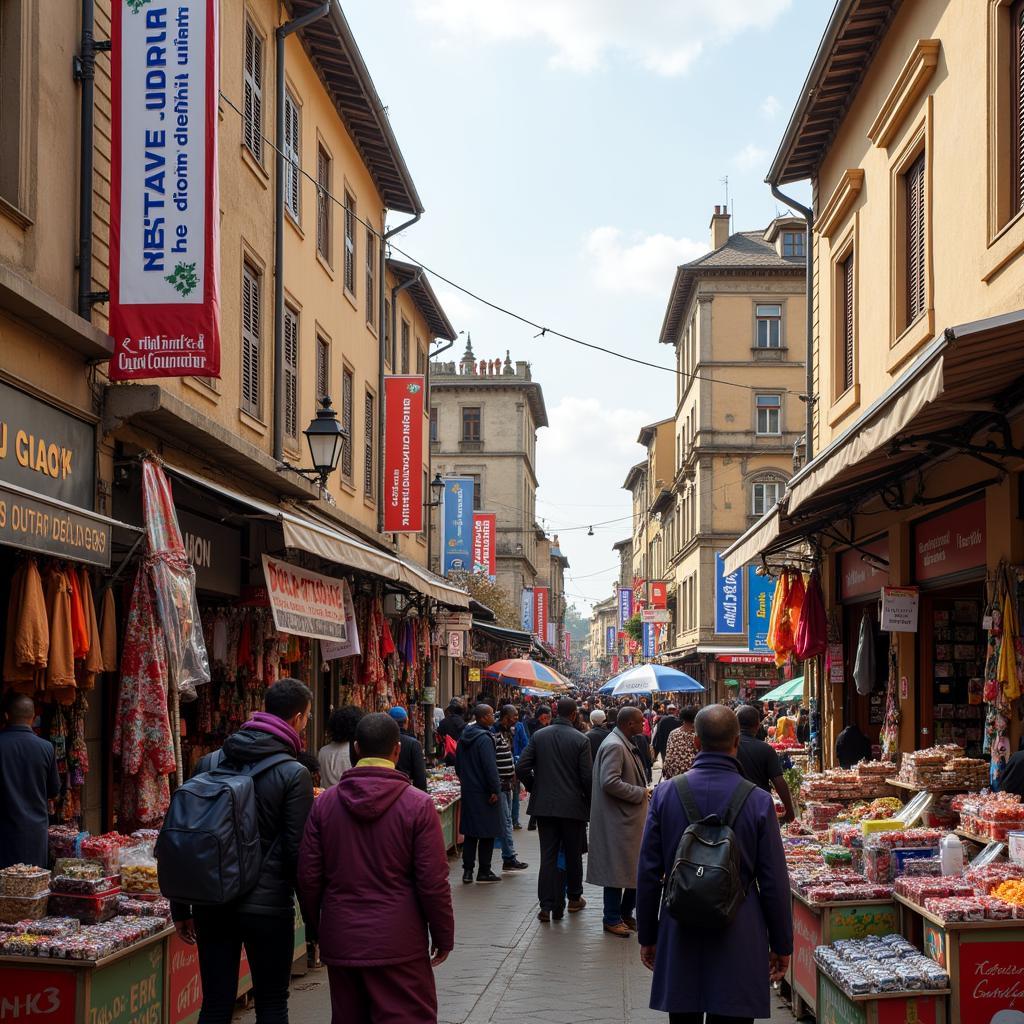 African Marketplace with French Signs
African Marketplace with French Signs
French continues to play a pivotal role in the identity of African Francophone countries. It serves as the official language in government, education, and media, connecting diverse ethnic groups within these nations. However, the relationship with French is multifaceted. While some see it as a tool for development and international communication, others view it as a vestige of colonial dominance.
Many African nations have embraced multilingualism, recognizing the importance of preserving indigenous languages while also leveraging the advantages of French in a globalized world. This has led to the emergence of unique linguistic landscapes where French coexists with vibrant local languages, enriching the cultural fabric.
Cultural Kaleidoscope: Traditions, Arts, and Music
From the colorful festivals of Senegal to the intricate wood carvings of Côte d’Ivoire, African Francophone countries boast a rich cultural heritage. Traditional music and dance forms remain vibrant expressions of identity, often infused with elements of French and Arabic influences, reflecting the region’s complex history.
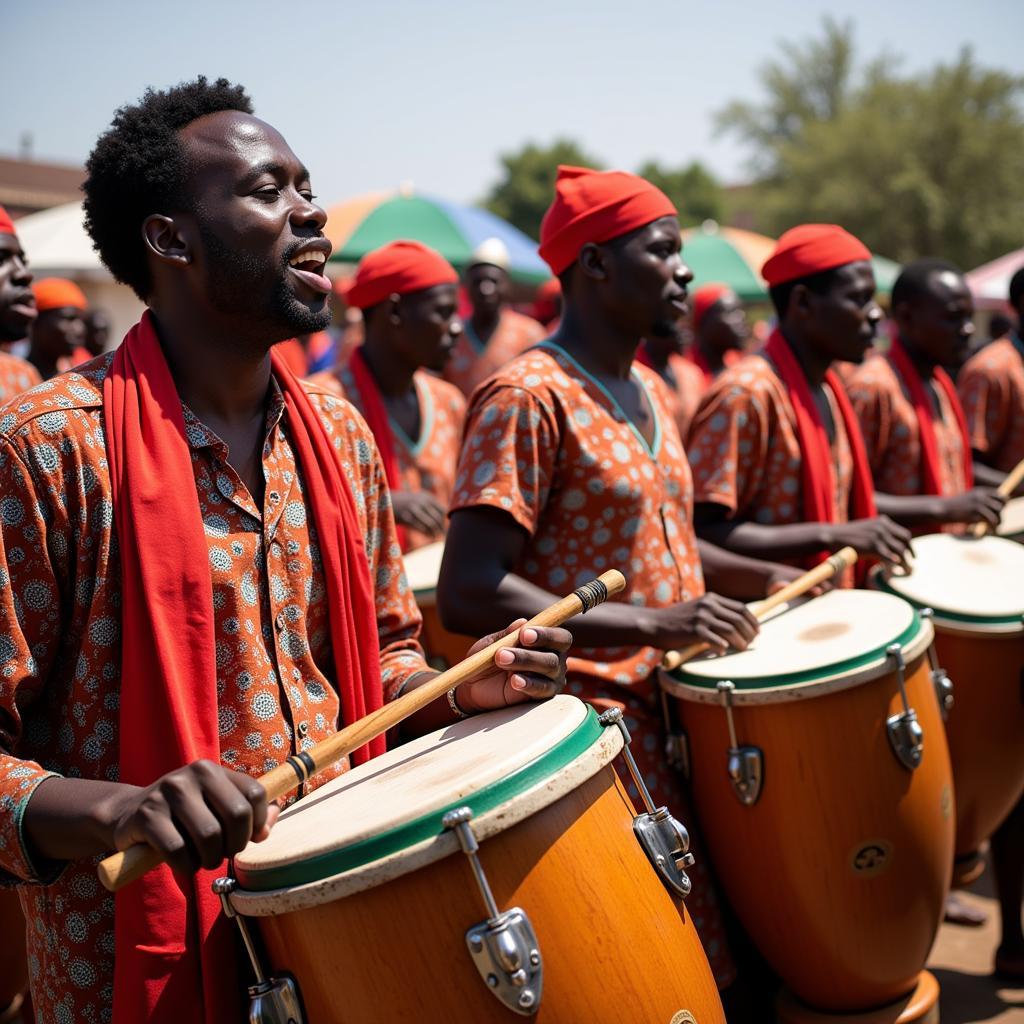 Senegalese Drummers at a Festival
Senegalese Drummers at a Festival
Literature has flourished in these nations, giving rise to renowned authors like Léopold Sédar Senghor of Senegal, a poet and philosopher who played a key role in the Négritude movement, celebrating African culture and identity.
Navigating Challenges, Embracing the Future
African Francophone countries face ongoing challenges, including poverty, political instability, and climate change. However, they are also witnessing positive transformations driven by a young and dynamic population, rapid urbanization, and technological advancements.
There’s a growing movement among these nations to forge closer ties, fostering economic cooperation and cultural exchange within the Francophone world. Organizations like the Organisation Internationale de la Francophonie (OIF) play a crucial role in promoting these partnerships.
As African Francophone countries continue to evolve, they do so with a strong sense of resilience, creativity, and a commitment to shaping their own destinies while embracing their unique place within the global community.
